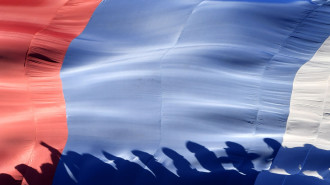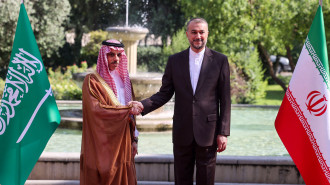
The Kahane movement: A legacy of violence and racism in Israel

Last month, the United States announced its decision to remove the Jewish extremist group, Kahane Chai, from its foreign terror list.
The move was met with backlash from Palestinian rights advocates and the Palestinian Authority condemned the decision as “rewarding” Israeli extremism.
While Kahane Chai hasn’t been directly linked to a terrorist attack since 2005, experts assert that the radical right-wing movement may be even more influential today than during its inception.
A history of violence and racism
Kahane Chai is a splinter group of the Israeli political party Kach, which was founded by Rabbi Meir Kahane in 1971. The US-born radical ran for elections under Kach several times, before finally landing a seat in the Israeli parliament, or Knesset, in 1984.
Kahane’s anti-Palestinian racism and Jewish supremacist ideology made him an outsider in the Knesset. His beliefs included expelling Palestinians and Arabs from Israel and the occupied Palestinian territories and advocating for a state dictated by Jewish law.
"Kahane Chai is a splinter group of the Israeli political party Kach, which was founded by Rabbi Meir Kahane in 1971"
Parliamentary members would often boycott his Knesset speeches and ignore his proposed legislation. Kahane only served a single parliamentary term due to the Knesset passing an amendment banning parties that incite racism from running.
Following Kahane’s assassination in 1990, Kach split into two groups — Kach and Kahane Chai. Kahane Chai, or “Kahane lives” in Hebrew, was run by Kahane’s son, Binyamin.
David Sheen, a Haifa-based investigative journalist and Kach expert, explained to The New Arab the meaning behind Kahane Chai’s name as Kahane still being alive through his son.
“So as long as the son was alive, the main vehicle of the Kahane movement was Kahane Chai,” Sheen said.
Both organisations were declared terrorist entities in 1994 after a Kach supporter, Baruch Goldstein, gunned down 29 worshippers at the Ibrahimi Mosque in the occupied West Bank city of Hebron. The US then added Kahane Chai to its terror list in 1997.
Organisations affiliated with Kach have been involved in anti-Arab violence over the years. Machteret, a Jewish underground terror unit, committed several attacks in the 1980s against Palestinians. Israeli authorities prevented the Machteret from executing a plot to blow up Al-Aqsa Mosque.
The suspects behind the 1985 killing of Alex Odeh, the American-Arab Anti-Discrimination Committee’s West Coast director, are believed to be from Kahane’s Jewish Defense League.
The US State Department justified its delisting decision by citing that Kahane Chai hasn’t been engaged in terrorism for a number of years, but Sheen said that reasoning doesn’t hold weight.
“The grossest thing to come out of that announcement is the pretence that they haven't committed a terror attack in five years,” Sheen said. “Are these not the same Kahanists who organised anti-Palestinian pogroms and race riots all across the country last May? That doesn't count as Kahanist terror?”
|
|
The last known terror attack to be committed by a Kahane Chai member was in 2005, when an Israeli soldier abandoned his post and shot four Palestinian citizens of Israel. But Sheen explained that just because the group hasn’t been violent under its original name doesn’t mean it’s inactive.
According to Sheen, Chabad Rabbi Yitzchak Ginsburg took over as the top religious leader of the Kahanist movement after Kahane’s son, Binyamin, was assassinated in 2000. At that year’s annual tribute to Kahane, Ginsburg declared the deceased extremist was right and his work must continue.
Ginsburg runs the Od Yosef Chai yeshiva in Yitzhar, a notoriously violent, illegal Israeli settlement in the West Bank. In 2015, alleged followers and students of Ginsburg burned down the Palestinian Dawabsheh family’s home - killing an 18-month-old baby and his parents.
“Whether they call themselves the Jewish Legion or the Committee for the Safety of the Roads or Lehava, all these different branches are part of the same movement, but they're straight terrorists and all Kahanists,” Sheen said.
"Decades after Kach's founding and Kahane's death, Kahanist beliefs still persist today. Itamar Ben-Gvir, a disciple of Kahane, was elected to the Knesset in 2021 under the Otzma Yehudit, or Jewish Power, party"
The Kach movement is still alive and well
Decades after Kach’s founding and Kahane’s death, Kahanist beliefs still persist today. Itamar Ben-Gvir, a disciple of Kahane, was elected to the Knesset in 2021 under the Otzma Yehudit, or Jewish Power, party. Many activists consider Otzma Yehudit as the reincarnation of Kach.
Yet whereas Kahane was isolated in the Knesset, Ben-Gvir is growing in popularity. Dr Shaul Magid, the author of 'Meir Kahane: The Public Life and Political Thought of an American Jewish Radical', says this is because the Israeli mainstream has changed and centrist politicians espouse the same beliefs as their right-wing counterparts.
“When that happens, Kach doesn't seem to be as extreme as it once was,” Magid told The New Arab. “So that's why someone like Ben-Gvir, everyone just shrugs their shoulders because he’s not so far from the mainstream.”
Sheen agrees with the notion that Israeli society has made Kahanism part of the mainstream.
“The old elites find Kahanism despicable,” Sheen said. “But that old elite is diminishing and rising to replace it are the new elites. The new elites are the settlers and for them, Ben-Gvir is a hero.”
Lawmakers have supported Ben-Gvir in his provocative endeavours, like setting up makeshift offices in the flashpoint neighbourhood of Sheikh Jarrah. The firebrand politician has also received a significant public following.
As Ben-Gvir increases in popularity, so too does Kahanism. Otzma Yehudit was largely successful in the last election because former prime minister Netanyahu allied with them. But it appears the party’s political future may not rely on other leaders’ support.
“It looks like in the next election, [Kahanists] are going to sweep, they're going to get many more votes, and become a powerhouse unto themselves,” Sheen said.
Jessica Buxbaum is a Jerusalem-based journalist covering Palestine and Israel. Her work has been featured in Middle East Eye, The National, and Gulf News.
Follow her on Twitter: @jess_buxbaum

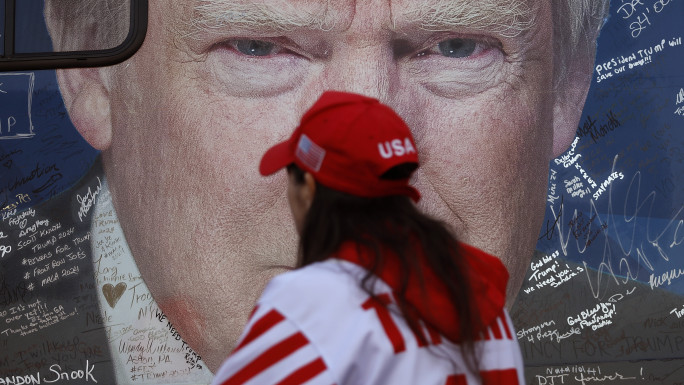

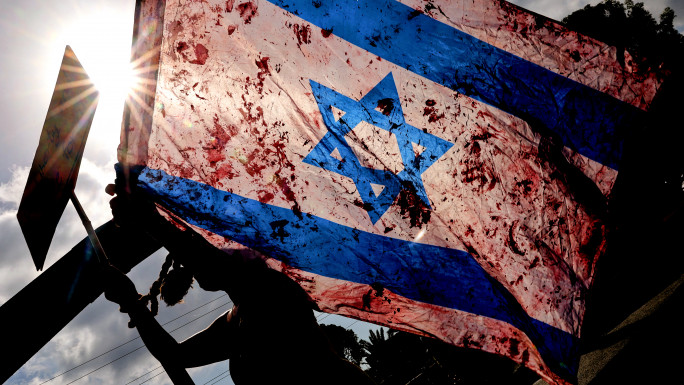
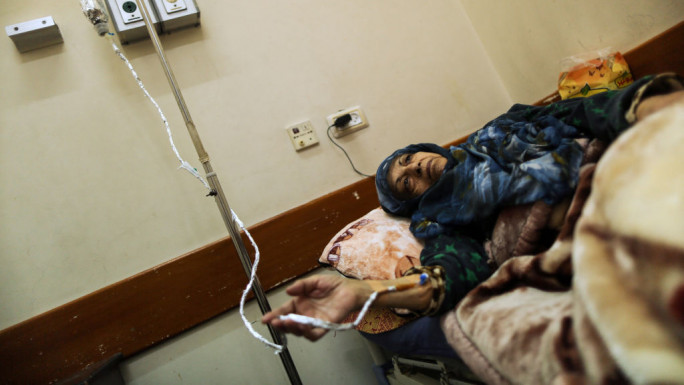
 Follow the Middle East's top stories in English at The New Arab on Google News
Follow the Middle East's top stories in English at The New Arab on Google News
